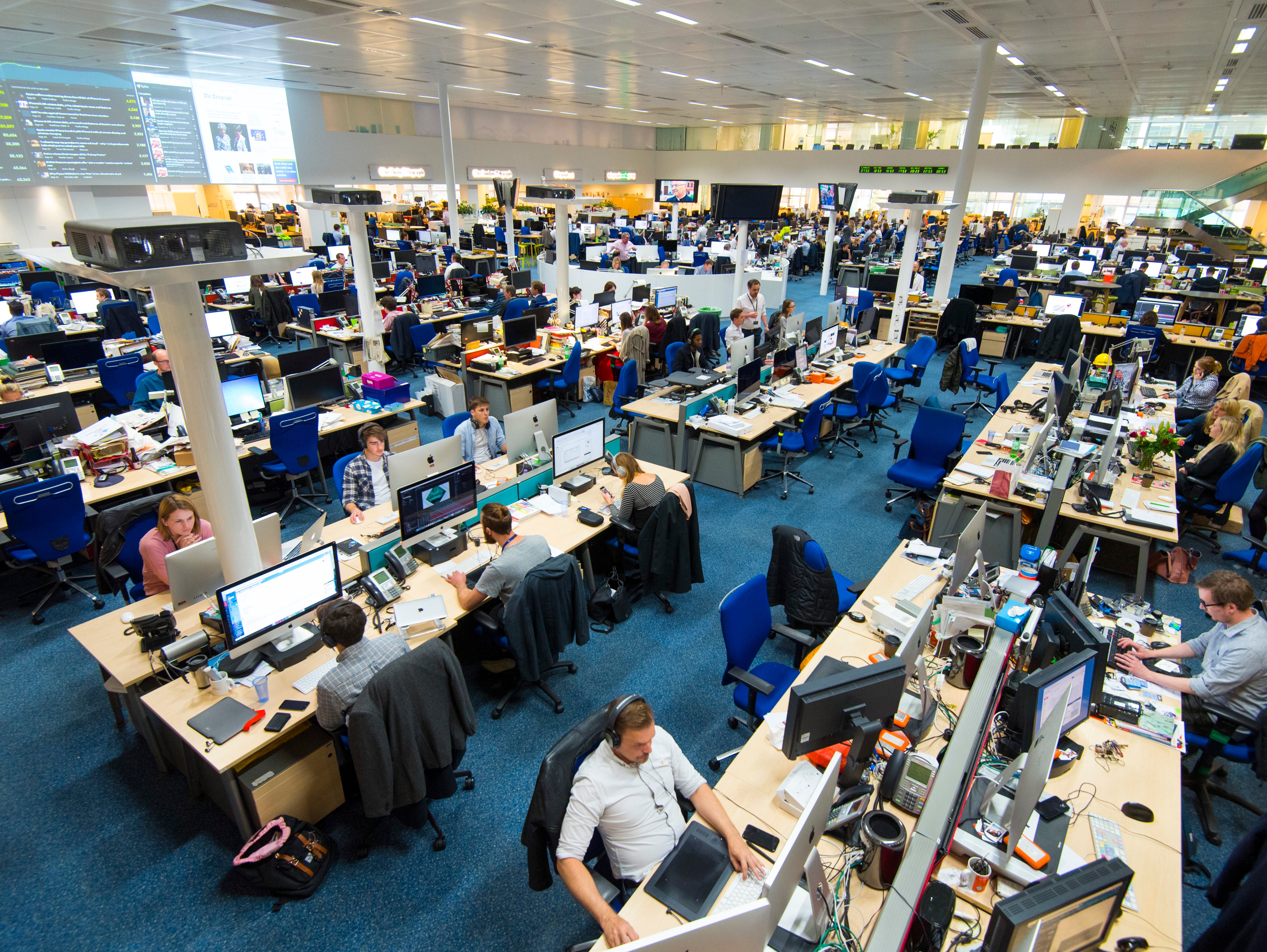
The Telegraph is joining forces with four other news publishers in Europe and the US to launch an investigation on the misuse of big data.
The newspaper will work alongside Germany’s Die Zeit, France’s Mediapart, The Intercept in the US and citizen journalism website Wikitribune to call for information from whistleblowers which may be of high public interest and constitute potential threats to democracy.
The five media groups have a combined audience of more than 46m people globally and will make the resources of more than 30 full-time investigative journalists available for the project.
They decided to work together to maximise the impact of their investigation and will share the information they receive, investigate in a collaborative way, coordinate the nature and format of stories before publication and respect an embargo.
It follows in the wake of the Cambridge Analytica scandal, which saw the Observer, Channel 4 News and New York Times team up to reveal that the data firm had allegedly harvested the data of 50m Facebook users to influence the US presidential elections.
The media groups are being supported by US non-profit The Signals Network, which aims to promote transparency, accountability, reporting and whistleblowing in the public interest.
The organisation said: “Collectively, the journalists leading the project consider the misuse of sensitive personal data at scale to be of great public interest with major global, human and financial impact.”
Claire Newell, the Telegraph’s investigations editor, told Press Gazette the newspaper had been in discussions with The Signals Network since last year.
“They met several UK based publications and we were really pleased they chose to work with us,” she said.
Explaining why the Telegraph wanted to be involved, Newell said: “The Telegraph has a well established and strong track record when it comes to investigations which are in the public interest, most notably the Westminster expenses scandal and more recently Football for Sale.
“We thought it sounded like a really exciting project.
“It can be very difficult for whistleblowers to reveal information that is in the public interest. By working with the Signals Network and other media, it means they can be offered lots of support and we will have a large team to examine possible leads.”
Newell added that, as investigations are so resource and time intensive, working with other organisations “means we can deal with more large scale projects”.
The Telegraph’s dedicated investigations team will be involved in the project, and have a range of experts and specialists who are able to help depending on the specific subject area, Newell said.
She added: “I would hope that whistleblowers will be able to provide evidence of ‘wrongdoing’ and we can support them.
“As well as being really exciting to work on, it’s really important to be continuing our commitment to public interest journalism and working with whistleblowers.”
The media groups are now encouraging potential whistleblowers “who believe in good faith that the practices of corporations with access to big data are harming the public interest” to contact them directly.
Jimmy Wales, founder of Wikipedia and WikiTribune, said he was “proud” to have joined the “important call for information”.
“I always have been committed to free and open knowledge, as Wikipedia demonstrates,” he added. “I believe that The Signals Network and the initiatives it supports can contribute to more transparency and to the peo ple’s right to know when major injustice occurs.”
Gilles Raymond, founder and chairman of The Signals Network, said his group was committed to protecting any whistleblowers who get in touch.
“It is time to create a proactive dynamic towards whistleblowers,” he said. “We believe that the people have the right to know and the duty to tell when major wrongdoing occurs.
“Whistleblowers who risk everything to reveal the truth need more support.”
Picture: Eddie Mulholland/Telegraph
Email pged@pressgazette.co.uk to point out mistakes, provide story tips or send in a letter for publication on our "Letters Page" blog
